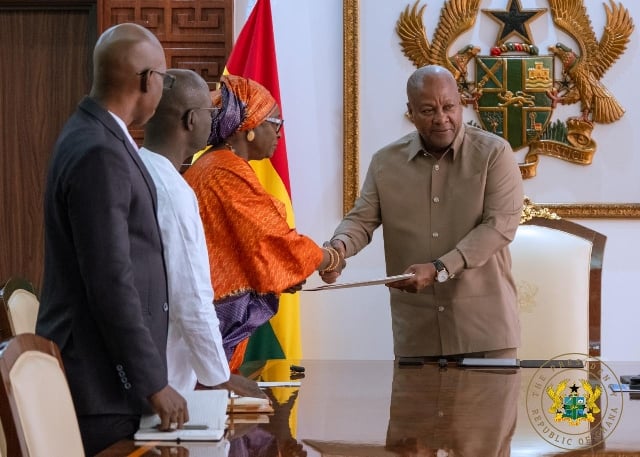The meeting between former Ghanaian President John Dramani Mahama and a Senegalese delegation, led by Foreign Minister Yassine Fall, signified a reaffirmation of the deep-rooted historical ties between Ghana and Senegal, two nations that have consistently championed Pan-Africanism and the assertion of the African identity. The central purpose of the meeting was the delivery of a formal invitation from Senegalese President Diomaye Faye, requesting President Mahama to deliver the keynote address at a significant event slated for September 26, 2025. This invitation underscores Mahama’s continued relevance and influence on the African political landscape, highlighting his role as a respected voice on Pan-African issues and his commitment to advancing the continent’s agenda. The meeting provided a platform not only for diplomatic exchange but also for a poignant reflection on the shared history and common goals of the two nations.
President Mahama’s acceptance of the invitation served to emphasize the enduring partnership between Ghana and Senegal. He eloquently articulated the historical significance of this bond, tracing their joint involvement in the Pan-African movement and the struggle for African liberation. He underscored the pivotal role both nations played in shaping the narrative of African identity and promoting unity among African states. Mahama’s remarks served as a reminder of the historical context that informs their present collaboration and underscored the importance of continued solidarity in addressing contemporary challenges facing the continent. This shared history serves as a foundation for ongoing cooperation and mutual support in navigating the complex political and economic realities of the 21st century.
Beyond the ceremonial exchange of the invitation, the meeting provided an opportunity for a substantive discussion on pressing issues facing the African continent, particularly the pursuit of reparations for the historical injustices of slavery and colonialism. President Mahama passionately advocated for the cause of reparations, drawing a parallel with the reparations paid for the atrocities of the Second World War. He argued that the transatlantic slave trade, with its devastating impact on Africa, constituted a crime of even greater magnitude, warranting substantial redress. This emphasis on reparations underscores the growing global movement to acknowledge and address the lingering legacies of colonialism and slavery, a movement in which both Ghana and Senegal are playing prominent roles.
Mahama’s powerful argument for reparations hinged on the premise that the wealth and development of many Western nations were built on the exploitation of Africa’s human and material resources. He pointedly stated that the prosperity enjoyed by these nations was directly linked to the suffering and deprivation inflicted upon Africa through centuries of enslavement and colonial rule. This assertion connects the historical injustices of the past to the current economic disparities between developed and developing nations, framing the demand for reparations not simply as a matter of historical accountability but also as a crucial step towards achieving global economic justice. By drawing this connection, Mahama reinforces the urgency and moral imperative of the reparations movement.
The Senegalese delegation, through Foreign Minister Fall, also expressed condolences for the tragic helicopter crash in Ghana that resulted in the loss of eight lives, including senior government officials. This expression of sympathy underscored the human dimension of the diplomatic relationship, demonstrating a shared sense of loss and solidarity in the face of tragedy. Beyond the formal aspects of the meeting, this gesture of condolence highlighted the deep human connection between the two nations and their peoples. It served as a reminder that diplomatic relations are not merely transactional but are built on shared values, empathy, and mutual respect.
The presence of Ghanaian Foreign Minister Samuel Okudzeto Ablakwa and Presidential Advisor Joyce Bawah Mogtari at the meeting further emphasized the importance of the occasion. Their participation signals the commitment of the Ghanaian government to maintaining and strengthening bilateral relations with Senegal. Their presence also ensured that discussions were comprehensive and that key stakeholders were involved in shaping the future direction of the Ghana-Senegal partnership. This high-level representation reflects the significance that both nations attach to their ongoing collaboration and their shared vision for a stronger, more unified Africa.














